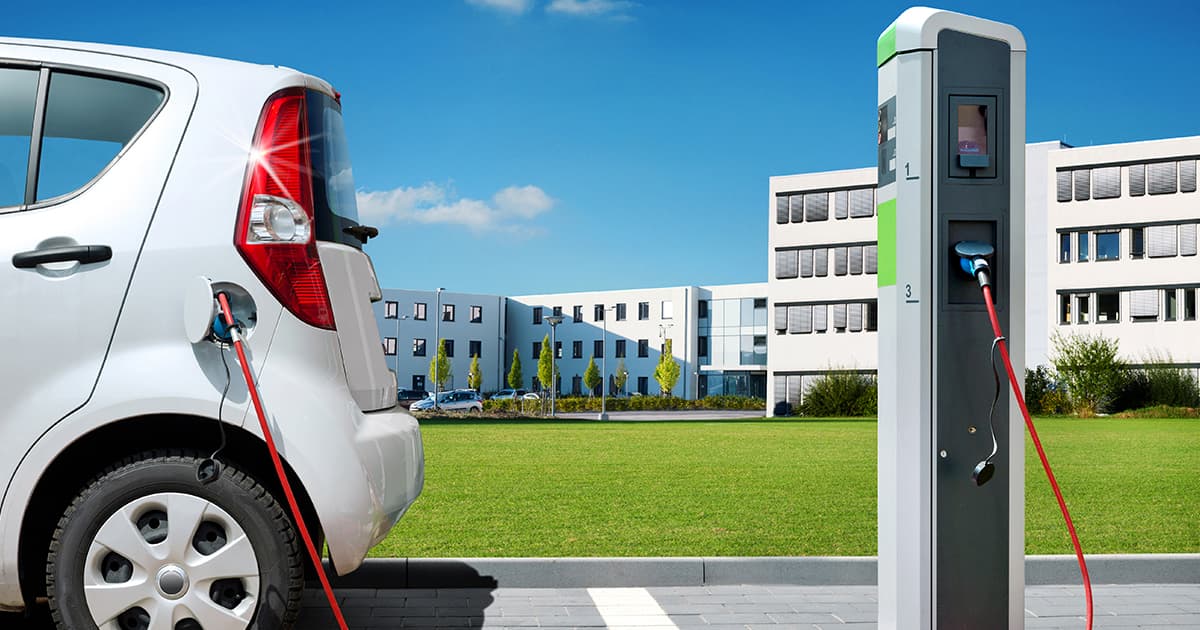How to Drive an Electric Vehicle

If you're considering making the switch to an electric vehicle or have recently purchased an ne, you need to understand how to drive an EV to maximize its benefits.
You’ll also need to understand how insurance for electric vehicles can differ from standard policies.
Understanding Electric Vehicles
Electric vehicles operate on electric power, distinctly different from the gas combustion engines of traditional vehicles. This fundamental difference brings about a unique set of characteristics and driving dynamics.
EVs are known for their instant torque, quiet operation, and innovative features, which contribute to a distinct driving experience.
Western Financial Group has a partnership with Rivian, a maker of electric trucks and electric sport utility vehicles (SUV). Rivian and Western have come together to offer a streamlined insurance process for your Rivian vehicle's registration, insurance, and delivery.
Getting started with your EV
Before going out on the road, take some time to understand your EV's dashboard and controls.
EVs often come equipped with advanced technology and touch-screen interfaces that control various aspects of the vehicle, including driving modes, regenerative braking settings, and more.
Mastering regenerative braking
One of the standout features of electric vehicles is regenerative braking. This system recovers energy during braking and uses it to recharge the battery.
It also allows for "one-pedal driving," where lifting your foot off the accelerator causes the vehicle to slow down significantly, reducing the need to use the brake pedal frequently.
Charging etiquette
Understanding how and when to charge your EV is essential. Home charging is convenient and typically done overnight. When you are using public charging stations, though, you need to be mindful of charging etiquette, such as unplugging your vehicle once it's charged and being considerate of other users.
Driving tips for optimal performance
Maximizing range
To extend your EV's range, adopt smooth driving habits. Sudden acceleration and high speeds consume more battery life.
Planning your route
For longer trips, plan your route considering the location of charging stations. Many EVs offer integrated navigation systems that highlight charging points along your journey.
Adapting to weather conditions
Cold weather can significantly impact your EV's battery performance. Preconditioning your vehicle while it's still plugged in can help preserve its range. Also, using seat heaters instead of the cabin heater can save energy.
Electric vehicle insurance: What you need to know
When it comes to insuring your EV, there are a few key differences compared to traditional car insurance policies. Understanding these distinctions will help ensure that you have the right coverage for your EV.
Electric vehicles typically cost more to purchase than their gasoline counterparts, which can translate into higher insurance premiums. This is partly because EVs are equipped with expensive technology and battery packs that are costly to repair or replace.
Battery coverage
The battery is the heart of an electric vehicle and its most expensive component. Ensure your insurance policy specifically covers the battery, as some standard policies may not provide full coverage for battery-related issues.
Specialized repairs
EVs require specialized knowledge for repairs, which means they may need to be serviced at specific dealerships or repair shops. This specialization can lead to higher repair costs, influencing insurance premiums.
The cost of an EV charger at home
The cost of installation can vary. Typically, the cost to install an EV charger will be between $1,000 and $3,000 and can cost more in some cases. A home charger for your EV will also add to your electricity bill.
Not all electrical panels are equipped to handle the additional power demands of an EV charging station. If this is the case in your home, you’ll first need to upgrade your electrical panel before installing a home charging station, which adds to the cost.
Discounts and incentives
Some insurance companies offer discounts for electric vehicles due to their lower risk of certain types of accidents and their environmental benefits. Driving an EV may qualify you for green vehicle incentives, so it's worth inquiring about potential savings with your insurer.
Cost savings associated with electric vehicles
One of the most compelling reasons to switch to an electric vehicle (EV) is the potential for significant cost savings over time. These savings come in various forms, including reduced fuel costs, lower maintenance expenses, and potential tax incentives.
Gasoline vs. electricity costs
The most immediate saving EV owners notice is on fuel. Electric vehicles, powered by electricity, cost significantly less to "fuel" compared to the gasoline expenses for traditional vehicles.
The exact savings will depend on local electricity rates and the fuel efficiency of the gasoline vehicle to which you're comparing it.
Maintenance savings
Electric vehicles have fewer moving parts compared to internal combustion engine vehicles. They do not require oil changes, fuel filters, spark plug replacements, or emission checks.
This reduction in parts and complexity can lead to lower maintenance costs. It’s important to note, though, that while routine maintenance costs are lower, repairing or replacing an EV's battery can be expensive.
Government incentives
To encourage the adoption of electric vehicles, many governments offer tax credits and incentives for EV purchases. These incentives can offset the initial higher purchase price and installation of home charging equipment.
Resale value
Initially, electric vehicles faced concerns over their resale value, primarily due to the uncertainty surrounding battery life. As technology has advanced and public confidence in EV durability has grown, the resale values of electric vehicles have improved. This factor can contribute to the overall cost effectiveness of owning an EV.
As the EV market continues to evolve, staying updated on the latest developments in electric vehicle technologies and insurance options will help you make the most of your investment.
Ask your Western Financial Group car insurance expert about insuring your EV.



